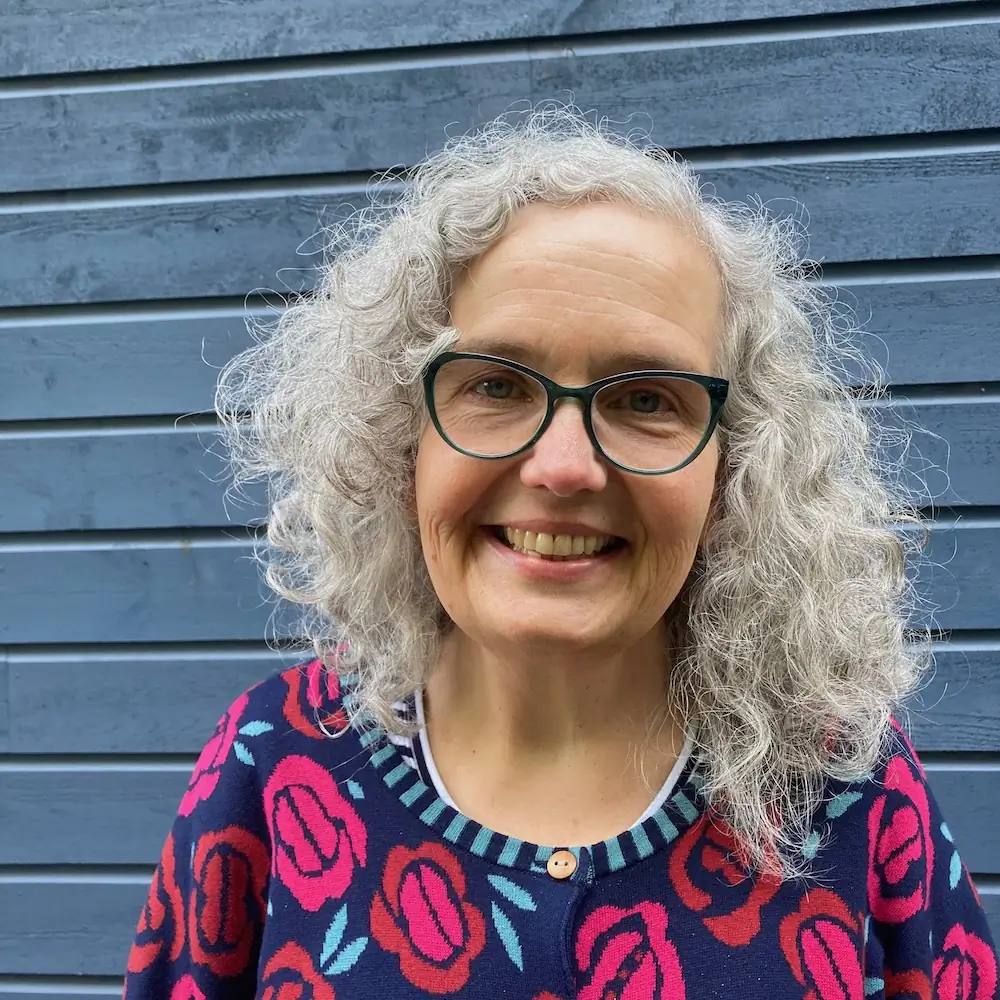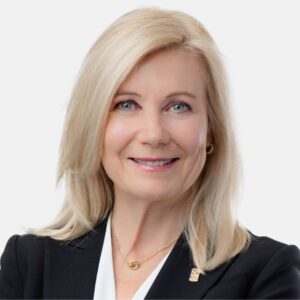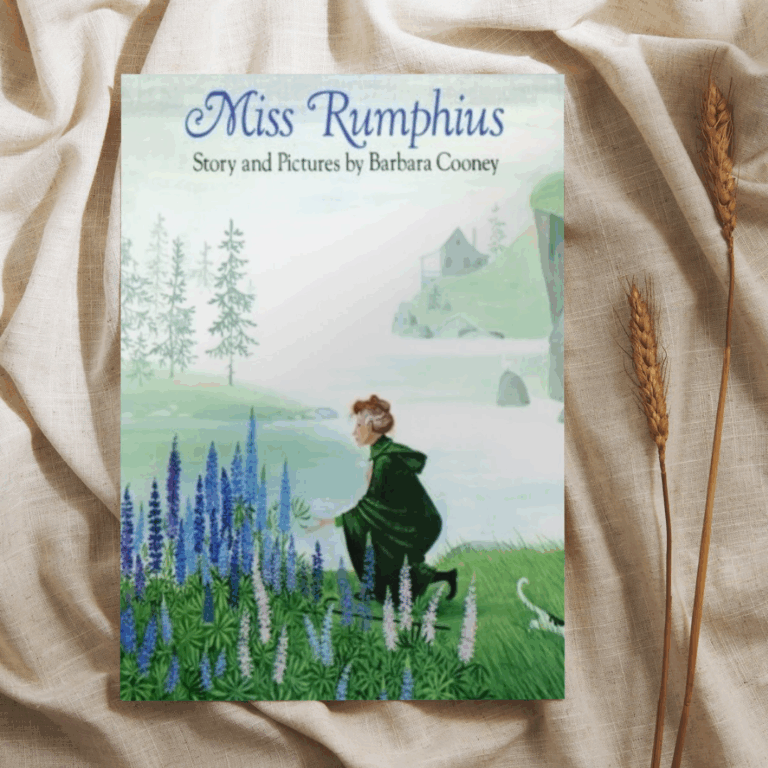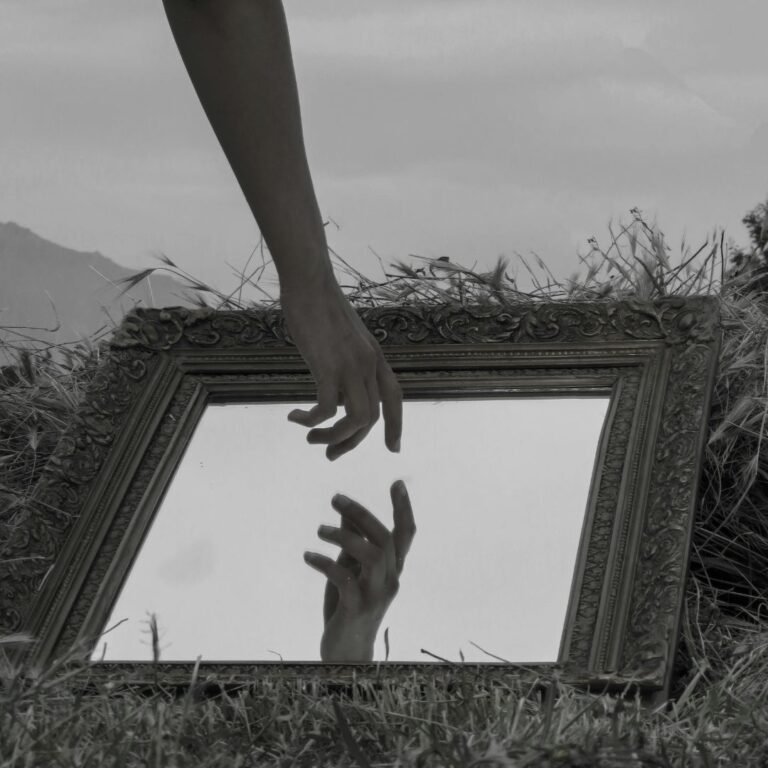Ann Douglas – Parenting expert and acclaimed author
Ann Douglas is an award-winning author, CBC Radio commentator, mental health advocate, and speaker. She speaks openly about parenting through a pandemic, her struggles with mental health, her journey to becoming an author, and her thoughts about government policy changes to better support parents and our economy.
Note: This transcript has been edited for clarity and length.

Jennifer Stewart: You are one of those parenting experts that doesn’t profess to have all the answers. It’s been so refreshing because you throw out this notion of perfectionism. Why do you think that approach resonates with so many mothers?
Ann Douglas: We all carry a harsh little self, an inner critic, in our heads. And so often, even at the best of times, we focus on all the things that went wrong or all the things we wish we hadn’t said or done. And right now, the stresses that parents carry around have been dialed up by 10,000 per cent. There is a tendency to be hard on yourself at a time when you should be giving yourself a tremendous amount of slack. Holding yourself up to a normal expectation seems harsh to me right now.
Jennifer Stewart: How do you do that? How do you give yourself a bit of slack but still feel like you’re an active parent and you’re helping your children navigate this pandemic?
Ann Douglas: You must think about what is most important now and stay focused. And we want families to come out the other side feeling connected, happy, and healthy. We’re following all the public health advice about keeping our kids physically safe. But we also need to think about the emotional, relational piece. Children need most right now to feel safe, secure, loved, and supported by their parents. We can show our kids modelling in real-time, for better and for worse, how we think about managing our emotions now.
Catherine Clark: Did you start your career thinking you’d be a parenting expert?
Ann Douglas: I started out studying history. I was on a path to maybe do journalism to write books and so on, but I didn’t know what I wanted to write about. Then my passion for writing collided with what would end up being my passion for parenting. Shortly after graduation, I married my high school sweetheart, and we had the first three kids in three-and-a-half years. It was a little intense. And I had some very early struggles with infertility, I had a miscarriage, and, sadly, we lost a baby to stillbirth. I started feeling frustrated because it seemed like all the parenting books at the time assumed that everything would go perfectly for you in your life as a parent. And I was feeling so guilty, so inadequate, and so angry. The worst moment was when I came home from the hospital after my daughter was stillborn, opening up one of my pregnancy books, and finding a little paragraph that said, “Don’t worry, stillbirth is pretty rare; it probably won’t happen to you.” Well, that doesn’t help when it just happened. I felt a call to write books that would ensure that other moms in the future who come home from the hospital feel seen in the pages of that book.
Jennifer Stewart: When you went through that stillbirth experience, how did that change your approach to parenting and life?
Ann Douglas: It changed my approach to everything because I felt, in the aftermath, that I had reached a fork in the road regarding my life. I remember feeling like there’s a choice here: you can let the grief draw you under and never get over this experience, or you can find a way to find some meaning in an otherwise horrible experience. This wasn’t like a eureka moment; this was six months of climbing out of a pit of despair and trying to find my way to the surface again. That lit a fire under me to start working in the parenting area. Back then, it was customary for parenting books to be written by “experts,” and a literary agent told me I wasn’t qualified to write a book about parenting because I wasn’t a doctor or a social worker. It’s good that my family has a gene for extreme persistence — some might frame it as stubbornness. I interviewed many families so that I could bring forth their wisdom because there is so much wisdom in the minds and hearts of parents.
Catherine Clark: Is there one thing that stood out for you most as you wrote your books? Is there one area which you didn’t expect to have such a significant impact on you?
Ann Douglas: One was talking to parents who had lost a baby through stillbirth or in early infancy. I was at a baby show, and a family came up to me. They had read Trying Again, which was my guide to pregnancy after miscarriage, stillbirth, or infant loss. They told me that reading my book had given them the courage to try again. I started crying, and they started crying. To me, it was the validation of everything I had hoped my books could do to let a parent feel seen, cared for, and understood in their darkest moment, because I remember what it was like to be that parent feeling like I was the only person living through this.
Then the other occasion was writing about my daughter’s mental health struggles about 17 years ago. She was a teenager; she went through a dark time. At one point, in a moment of despair, trying to find a way to numb the pain, she took two handfuls of extra-strength Tylenol and came dangerously close to ending her life. I don’t want to pretend that the parents fixed anything because we were putting our hands in the air, saying we don’t know what to do now. But just trying to be there, give her love and support, and connect with other parents who’ve had similar experiences.
Jennifer Stewart: When I know I’m struggling personally or professionally, I don’t feel like I’m doing my best as a parent. I feel like an impostor. How do you break through that feeling of being an impostor parent because you’re not doing the perfect job?
Ann Douglas: Going back to the days when my daughter was a teenager, I remember her taking me aside one day and looking at me with that piercing look and saying, “My friends think it’s hilarious that you write parenting books,” and it helped me to check my ego. Luckily, I had always put an imperfection disclaimer in my books. I think it’s in the Mother of All Parenting Books, it says, “This is a book for gloriously imperfect parents.” If a TV crew shows up in my driveway, it’ll take them 45 seconds to get footage of the Douglas family needing improvement.
Catherine Clark: How did you write all these books while still parenting?
Ann Douglas: I wrote a lot in a short period. And I guess my secret ingredient was being bipolar, which is not necessarily an ingredient I widely recommend to other people, but it does have its upside. But then I went to my doctor and said, “I feel like I can’t put any of the brakes on my emotions and my energy. I feel like I’m revved up all the time and I know I’m going to burn out and I’m actually kind of scared.” That’s when I went on medication, and around the same time, I went through an excruciating three-year clinical depression, where I crashed. So yes, I was highly productive for several years. I had a couple of books come out in 2006, and then I didn’t have any more books until 2015 and 2019. That’s a pretty big gap where all I was doing was either treading water emotionally or finally recognizing that I was a human being who had a body and maybe should take good care of this physical body or do revisions of existing books.
Jennifer Stewart: Many parents are struggling with their mental health right now. How do we support parents’ mental health in this strange time?
Ann Douglas: Parents need to recognize the wildly abnormal situation and that the only way to get through this is to have realistic expectations of themselves and their kids. Right now, the one thing in your possession is that you can set the emotional tone for the family. The underlying philosophy here is to calm yourself, calm your child. We can do the same thing with kids of various ages, just being in the room where you offer reassurance. Even teenagers sometimes seem fiercely independent and don’t need us, but they need us a lot because the world is bizarre, and they’re working through many layers of disappointment and frustration.
Catherine Clark: We’ve seen so many stories through this pandemic about COVID’s impact on women, who, in many cases, are bearing the brunt of homeschooling and cleaning the house. They’re still trying to work full-time, etc. What advice do you have for those women?
Ann Douglas: They must communicate how overloaded they are, which means having tough conversations with their partner. It also means sometimes having tough conversations with your employer because adding multiple layers of new roles is not okay. The fact that there’s no childcare, the whole learning or remote learning expectations, those are massive. We can’t just invisibly absorb that because even before the pandemic, most women I know were already maxed out.
Catherine Clark: What can we learn from this regarding policy changes? We still live in a country that does not have a national childcare system. Is that something that you think about a lot? Do you have advice on what we can do differently on a policy level to help women?
Ann Douglas: My book, Happy Parents, Happy Kids, which is almost like a political book disguised as a parenting book, points to the need for systemic change. We tend in our culture to treat parenting as a personal problem or indulgence that individual families have to solve on their own. If we could only get the broader culture really excited about the opportunity to invest in the healthiest, happiest generation of children, future citizens, and workers ever. But that starts with seeing our interconnectedness — our need to turn to one another, to invest in one another — as a blessing, not a burden.
Jennifer Stewart: What’s the most essential piece of parenting advice you’ve ever received?
Ann Douglas: Self-compassion. I wish I had known about it many years earlier; it would have made life much easier. But self-compassion means treating yourself with at least as much kindness as you would extend to a friend who was struggling. I’m doing my best in a challenging situation and honouring that, acknowledging that I will fall short, because this is more than just a problematic situation. It’s an impossible situation. By showing my kids that I make mistakes and can recognize them, learn from them, and do the hard work of relationship repair, I’m teaching them that you don’t have to be perfect to be worthy of love.






